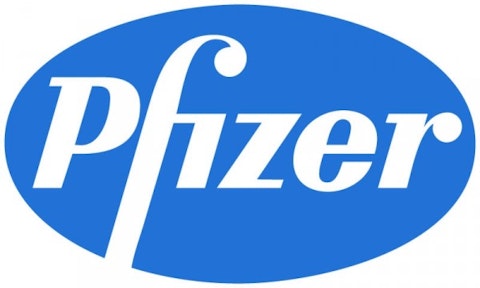There are many undeniable tailwinds the pharmaceutical industry should capitalize on going forward, such as rising health-care costs and the aging U.S. population.
At the same time, the pharmaceutical industry isn’t without its share of risks. Most prominently, some companies face losing patent protection on billion-dollar drugs, opening the floodgates to cheaper, generic competition.
Therefore, it’s worth plowing deeper into the patent cliffs facing Pfizer Inc. (NYSE:PFE), GlaxoSmithKline plc (ADR) (NYSE:GSK), and Merck & Co., Inc. (NYSE:MRK), and whether any of these companies should be avoided as a result.

Pfizer’s patent problems
Pfizer Inc. (NYSE:PFE) is already feeling the effects of losing patent protection on a blockbuster drug. Its best-selling drug ever, cholesterol medication Lipitor, brought in $10 billion to Pfizer’s coffers alone as recently as two years ago. Fast forward to today, and Lipitor accounted for just $545 million in revenue in the company’s most recent quarter.
The situation is such that Pfizer Inc. (NYSE:PFE)’s full-year 2012 sales fell 10%, which management attributed largely to losing Lipitor exclusivity. The problem has extended into the current year, as sales dropped another 9% through the first six months of the year.
Focus is now squarely on Lyrica, which is the company’s best-selling drug and now makes up 9% of Pfizer Inc. (NYSE:PFE)’s total revenue. Pfizer scored a huge victory last year when a court ruling sealed Lyrica’s exclusivity through 2018.
This is important because of Pfizer Inc. (NYSE:PFE)’s reliance on pharmaceuticals. Pfizer recently spun off its animal health business, and its consumer products segment represented just 6% of revenue in the most recent quarter.
Glaxo’s smoother road ahead
GlaxoSmithKline plc (ADR) (NYSE:GSK) is likely to navigate the next few years more smoothly than many of its rivals, due to its more diverse revenue split between pharmaceuticals, vaccines, and consumer products. Vaccines and consumer products account for about one-third of the company’s revenue.
However, GlaxoSmithKline plc (ADR) (NYSE:GSK)’s situation is clouded by the fact that its current best-selling drug, respiratory inhaler Advair, is undergoing patent loss. This is noteworthy since Advair made up 20% of Glaxo’s total sales through the first half of the year.
The market hasn’t concerned itself with Advair going off patent, and there’s a reason why. GlaxoSmithKline plc (ADR) (NYSE:GSK) management has long contended that Advair would be extremely difficult for generic competitors to copy, due to its uniqueness. Glaxo contends their inhaler manufacturing technology would be nearly impossible to duplicate, and to this point, the company’s assertion has been accurate.
At the same time, even GlaxoSmithKline plc (ADR) (NYSE:GSK)’s CEO himself admitted in the company’s most recent post-earnings conference call that competition won’t remain shut out forever. Therefore, the rapidly evolving COPD market is one issue Glaxo investors should carefully monitor going forward.
Merck muddling through
Merck & Co., Inc. (NYSE:MRK) is fully ensnared by loss of patent exclusivity. In its case, second-quarter net income dropped by nearly half to $906 million, from $1.79 billion the year prior. This was due heavily to the loss of allergy and asthma drug Singulair, which saw 80% lower quarterly sales.
Positively, Merck & Co., Inc. (NYSE:MRK)’s diabetes medication Januvia increased sales by 1%, to more than $1 billion, and CEO Kenneth Frazier noted that seven of the company’s top 10 products grew during the quarter.
Of particular concern is that Merck & Co., Inc. (NYSE:MRK) saw weakness in its other two major segments, animal health and consumer care, which realized 1.6% and 11% sales declines, respectively.





